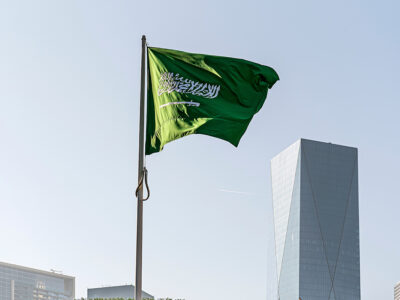Greenpeace denounced nuclear power as “morally unacceptable” on Tuesday and hinted that many nations seeking to harness atomic energy for peaceful purposes really wanted to develop weapons of mass destruction.
Speaking at the World Future Energy Summit in Abu Dhabi, Gerd Leipold, international executive director for Greenpeace, questioned the motives of nuclear programmes and drew parallels between countries seeking nuclear power and those seeking nuclear weapons.
“Is it that they [countries looking to harness atomic energy] want to provide power to the poorest people?” asked Leipold, “Or is it that they have [nuclear] weapons aspirations?”
Leipold’s comments come just a week after the UAE and Qatar signed agreements with France under which French companies will help the Gulf Arab states develop nuclear power for peaceful purposes.
A number of countries in the Middle East are looking to go nuclear. French president Nicolas Sarkozy has also offered to help Saudi Arabia and Egypt with their nuclear programmes.
Leipold also warned that even if countries were deemed politically stable now, there was no guarantee that they would be in the future, which could lead to nuclear technology falling into the wrong hands.
“Can any of us in this room guarantee that our states will enjoy complete political stability over the next hundreds of years? Because that is what it will take if we wish to pursue nuclear energy peacefully and safely,” he said.
Leipold also slammed the use of carbon capture and storage (CCS), a technology whereby greenhouse gases are pumped into oilfields to push out oil, reducing emissions while boosting output and freeing up natural gas that is currently used for the job.
Leipold said CCS was an unproven method for greenhouse gas reduction and was not even available yet.
Abu Dhabi Future Energy Company (Masdar) said on Monday it plans to develop a network of carbon CCS projects to reduce the UAE’s greenhouse gas emissions, which were 34.1 tonnes per head in 2004, the third highest in the world after Qatar and Kuwait, according to the UN Development Programme.
“Nuclear energy and carbon capture and storage leave an unwanted legacy for future generations. Greenpeace believes this is morally unacceptable,” Leipold said.
Leipold urged countries to embrace an entirely new perspective of energy consumption, saying desperate attempts to continue “business as usual” did not go far enough.
“What we need is nothing less than a revolution,” he said.







